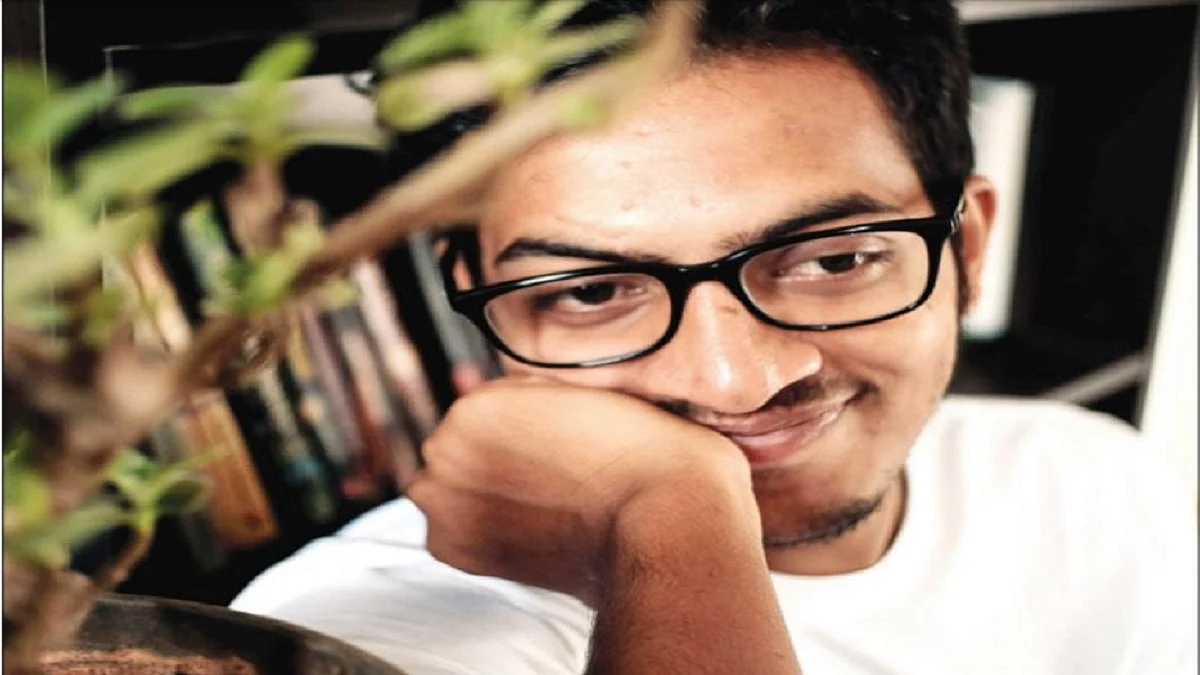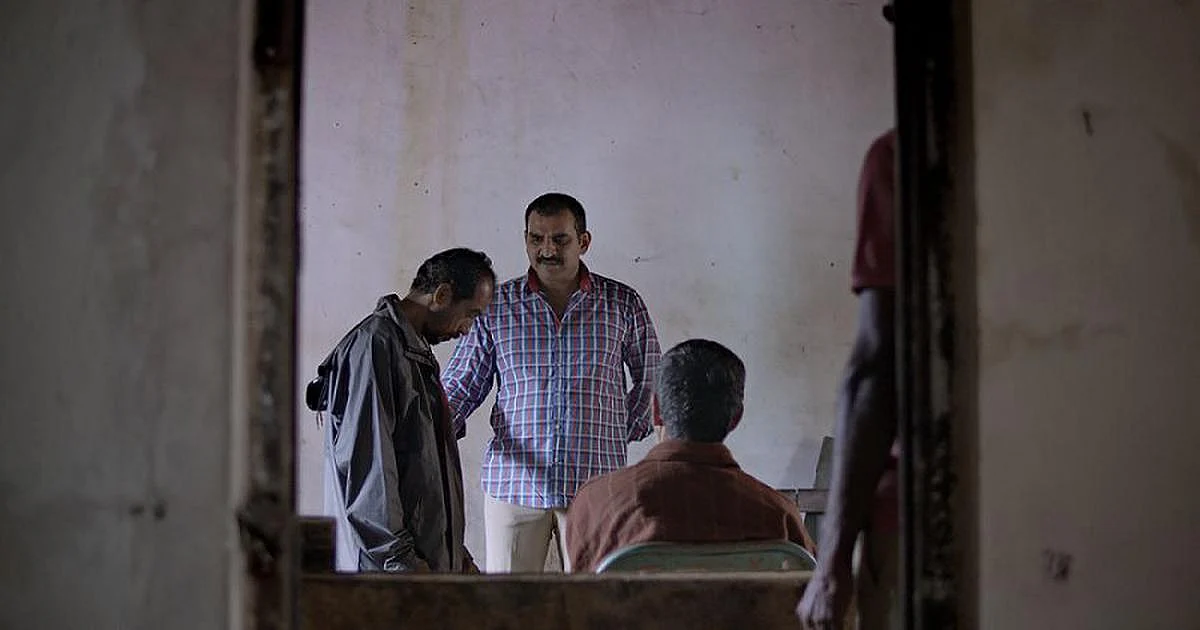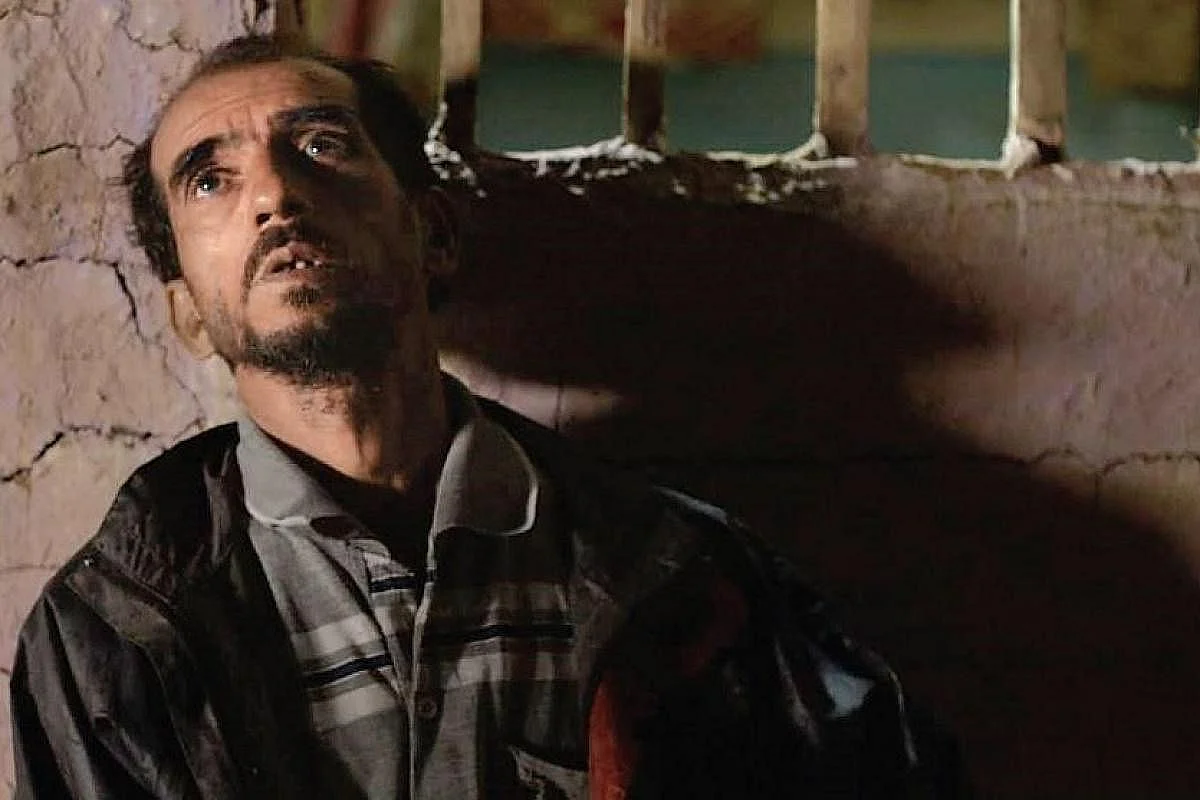The human and the beast
‘Pedro’ captures a vital slice of village life--its liquor dens and barber shops, people and their idiosyncrasies, the pervasive feudalism and the religious fanaticism and its blinding inhumanity

Kotalli is a small village of four houses in the Western Ghats in Karnataka. “One of those houses is my home,” says filmmaker Natesh Hegde. It has also been the setting for all his films so far— two shorts called The Crab and Distant—and his first feature film Pedro that premieres this week in the New Currents segment at the Busan International Film Festival.
For Natesh the locale is the singular most important element in a film. “The place is primary, from where the characters and the story emerge and into which the shot design gets structured,” he says. He hates using the place as just a backdrop and also thinks that the story can’t be forced out but must emerge organically out of its space. The idea of Pedro grew from an accident involving an electrician that happened in Kotalli when Natesh was 8 or 9 years old.
Humming electricity poles along the railway track is an iconic image identified closely by cinephiles with Satyajit Ray’s Pather Panchali. Natesh’s film begins and ends with electric poles as well and within this circuit he captures a vital slice of the village life-- its liquor dens and barber shops, the folk songs and Ganesh festivities, the people and their idiosyncrasies, their entangled relationships and dysfunctional families and, most so, the pervasive feudalism in the society and its brutal, toxic codes and the religious fanaticism and its blinding inhumanity.
Also Read: Reel Life: An ode to Gandhi’s Ahimsa

The protagonist Pedro swiftly climbs up and down the poles to fix the power supply for the surrounding areas. He lives with Julie (who is his own brother Bastyava’s wife) and her son and mother. Expectedly the relationship with the brother is far from cordial. Lording over them all is the village head Hegde.
Time is sacrosanct in Natesh’s storytelling. It flows gently, in tune with the rhythm of the place itself. Moments are held still at times, they flow fluidly into each other at other.
Natesh builds the plot slowly but surely, each event meticulously leading on to the next, to reveal the secrets and lies at the heart of the family. It takes just one question, casually thrown in a conversation, to bring the edifice of the cosy unit down.
The electric poles become an ominous presence in the thick of incessant rain and the lush foliage. As does a gun. An accidental shot that kills a cow instead of a wild boar sets a chain of unfortunate events into motion and has tragic repercussions on an innocent soul, seen as a menace by all.
Natesh wrote Pedro in May 2019, shot it during the monsoons in 27 days in August 2019 with a crew of about 25-30 people in the small towns of Mavinakatta, Sirsi and surrounding areas near his village. Almost his entire cast is drawn locally, including his father Gopal Hegde who plays the lead role. The only professional players are Medini Kelmane as Julie and well-known actor Raj B Shetty in a key role of a vigilante.
Popular actor-director Rishab Shetty has produced the film, FTII graduates Vikas Urs and Shreyank Nanjappa have done the camera and sound respectively, while Paresh Kamdar edited the film along with Natesh.
Pedro was part of the work-in-progress (WIP) lab in NFDC Film Bazaar 2019 where it won Prasad Lab DI Award for free postproduction services. It also won the Moviebuff Appreciation Award and was part of the “NFDC Goes To Cannes” initiative at the Cannes Film Bazaar in 2020.
One of the most assured, consummately realised and well-crafted of the recent Indian films, Pedro never makes you realise that it has been made by a self-trained rookie. In fact, Natesh’s journey into filmmaking could be the subject of a film in itself. He studied in Kotalli till 10th standard and then did graduation in science from Sirsi.
He then went to Dharwad to do his post-graduation in journalism after which he worked at Deccan Herald’s sister publication Prajavani for three months and later at Viacom 18 Kannada for another three months as a content writer. In between the two short stints was a slightly longer innings as a teacher at a private primary school called Chandna.

“I didn’t feel like doing these jobs for life. It wasn’t a fulfilling experience,” he says, confessing to the habit of switching things in life—be it education or job—if they don’t seem to be making a larger sense to him or taking him on any fruitful journey forward.
Cinema came to Natesh by chance, through an article on Abbas Kiarostami’s Closeup. He went to watch the film and came out of it a changed person. “I realised that filmmaking can be an intimate practice,” he says. He made Kiarostami the fulcrum, watched all his works and those of the filmmakers who influenced him and those who Kiarostami influenced in turn—from Robert Bresson to Jia Zhangke. “My understanding of the medium has come from watching films,” he says.
Quite like Kiarostami’s cinema, Pedro packs in a strong human statement with quietude and subtlety. Natesh didn’t want the political punch to be triggering, wasn’t insecure about whether a nuanced take would reach out to the audience and be understood. “I am not just interested in the issue or the sloganeering. However, I don’t want my work to be irrelevant either. There must be a balance between the idea and cinematic form used in expressing it,” he says.
Pedro is one of the most damning and hard-hitting cinematic indictments of feudalism and fanaticism and the benign cruelty they unleash on the powerless. It’s about how feudal structures are all about humiliating men and exploiting women, how religious bigotry brings out the beast in humans.
It’s all about a game of trust, deviousness, conspiracy and betrayal, in which every player is equally guilty and in which an innocent life hangs tenuously. The ultimate note struck is that of poignance, the chilling awareness of the easy dispensability of an underprivileged life.
Follow us on: Facebook, Twitter, Google News, Instagram
Join our official telegram channel (@nationalherald) and stay updated with the latest headlines